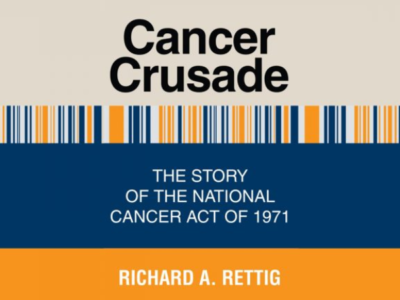Drugs that target a receptor on immune cells called activin receptor 1C may combat tumor-induced immune suppression and help patients’ immune systems fight back against cancer, according to a study by investigators at the Johns Hopkins Kimmel Cancer Center and its Bloomberg-Kimmel Institute for Cancer Immunotherapy.
Soy compounds called isoflavones are among the plant-derived compounds that may significantly reduce the risk of breast cancer recurrence or death, according to a meta-analysis co-directed by investigators from the Johns Hopkins Kimmel Cancer Center.
Combining a pair of experimental drugs may help treat malignant peripheral nerve sheath tumors with fewer harmful side effects, according to preliminary animal studies led by investigators at the Johns Hopkins Kimmel Cancer Center and Johns Hopkins Drug Discovery.
Michelle A. Rudek, a professor of oncology and director of the Analytical Pharmacology Shared Resource at Sidney Kimmel Comprehensive Cancer Center, died Nov. 7. She was 51.
Results from a phase II study, led by investigators at the Johns Hopkins Kimmel Cancer Center and its Bloomberg~Kimmel Institute for Cancer Immunotherapy, BC Cancer, and the Canadian Cancer trials Group, suggest that circulating tumor DNA analyses could be used as an early marker of immunotherapy response in advanced non-small cell lung cancer patients and may help guide therapy.
When Ashani Weeraratna began her career as a trainee at Johns Hopkins in the 1990s, she was part of a team that conducted research in a grocery store-turned-laboratory.
AccessHope and Johns Hopkins Medicine have partnered to increase access to oncology expertise and research to optimize cancer treatment plans across the U.S. through expert case reviews.
In addition to publishing out-of-print books in oncology, the Cancer History Project highlights new books on the history of the field.
Richard A. Rettig’s “Cancer Crusade: The Story of the National Cancer Act of 1971” is a peerless book, a comprehensive history of the buildup to and enactment of the landmark law that focused the U.S. government’s efforts to cure cancer.
A novel blood testing technology being developed by researchers at the Johns Hopkins Kimmel Cancer Center that combines genome-wide sequencing of single molecules of DNA shed from tumors and machine learning may allow earlier detection of lung and other cancers.









